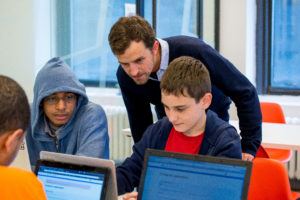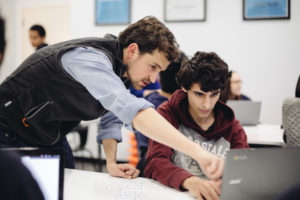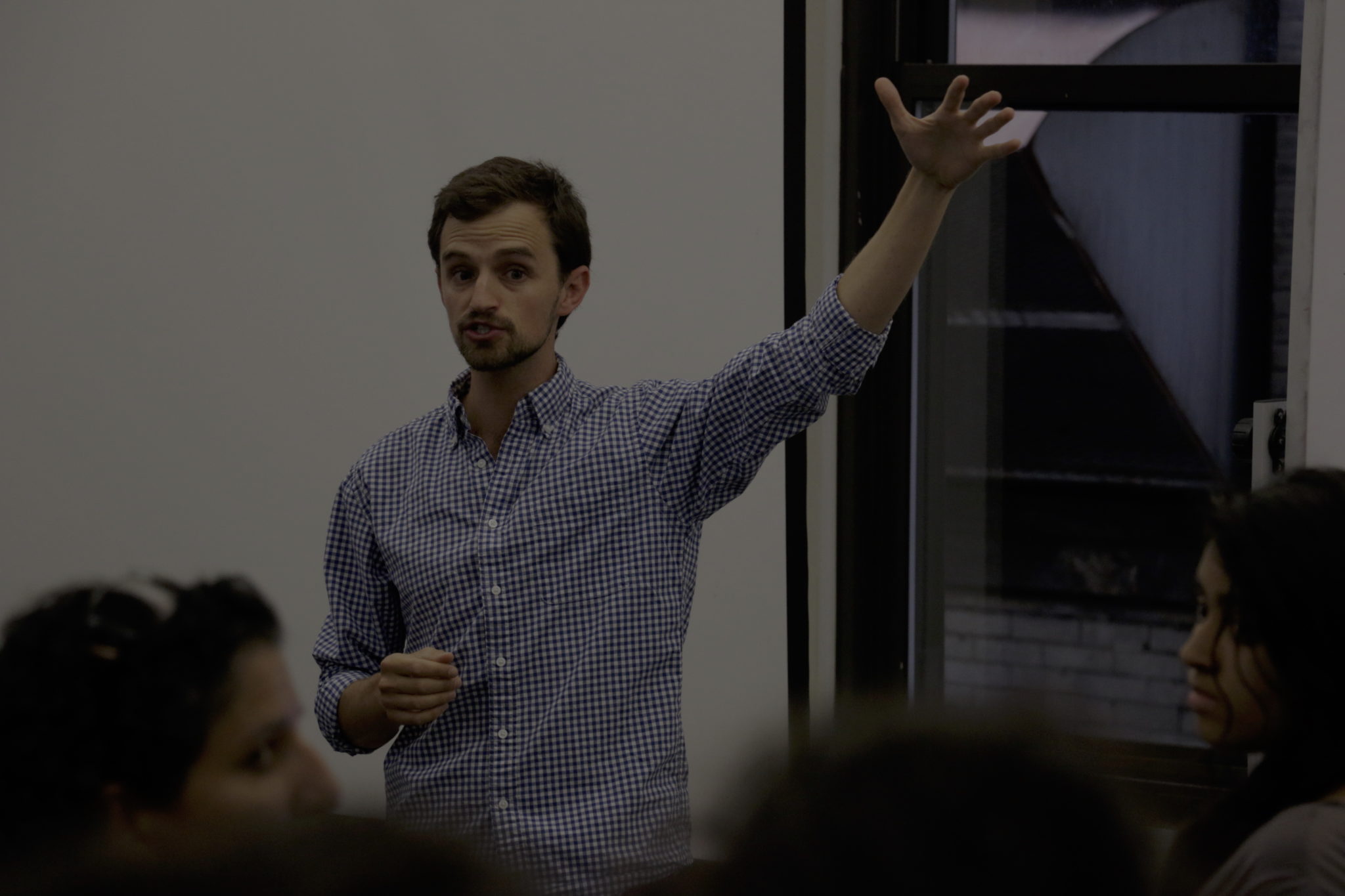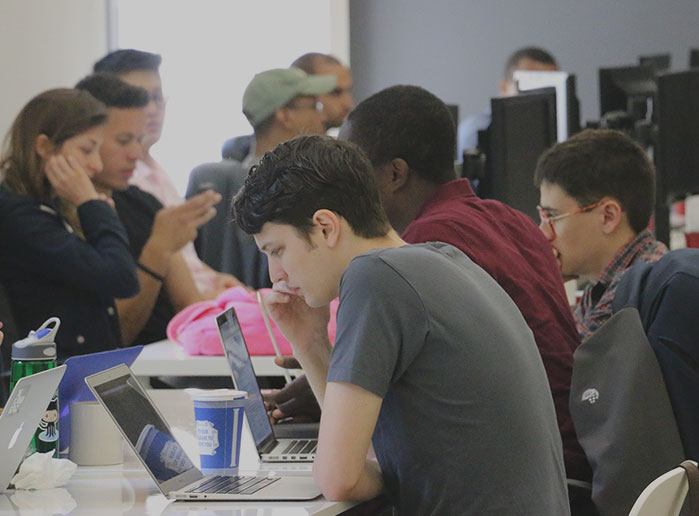Danny Fenjves’ path to Flatiron School- and now to founding Upperline, which offers computer programming courses for high school students – is unconventional, to say the least. After teaching Middle School in New Orleans with Teach for America, building content policy at YouTube in San Francisco, and working on a film set in India, Danny found himself pulled back to his passion for education and technology. Since graduating from the Flatiron School’s Web immersive, he has focused on building high school coding curriculum and professional development for computer science teachers. We caught up with him in at his office in lower Manhattan for a chat about what it’s like starting a business after Flatiron.

Why did you decide to attend Flatiron School?
I had been working at YouTube in the Bay Area for a few years and I realized that the most fun I was having at my job was working with engineers to build software tools for my team. There was a yearning to be closer to the ‘creation’ process and to understand the way that the technology we take for granted works for us behind the scenes. I’ve always loved building things – my friends think it’s crazy that I built a chicken coop in my backyard in San Francisco – and learning to code was a natural extension of this.
What convinced you to stay and work at Flatiron?
Right when I finished the web immersive, Flatiron School was working on building it’s high school summer programs. I’ve always loved teaching and missed spending time in the classroom. After an initial trial period, I was hooked. Seeing the ‘aha’ moments, building fun and engaging curriculum, helping students collaborate to build things that they were passionate about – this was (and still is) what I wanted to be doing. I loved coding, but I realized that I loved the process of teaching code even more.
What’s your favorite language to teach?
It’s funny, now that I’ve been doing this for a while I realize that every language has it’s pros and cons. For elementary and middle school students, Scratch is amazing. It helps visualize some of the more difficult computer science concepts that students deal with. For high school students, however, I’d wholeheartedly recommend Ruby. It’s simple to write, yet incredibly robust. You can jump right in to writing sophisticated code without dealing with too much syntax. I’ve been blown away by what students can build having learned Ruby for just two weeks.
You’re building your own business now – Tell me about it.
Yes! This is the most exciting piece yet. I’m taking my love of teaching and code and building a company called Upperline. The goal is to build fun, collaborative and rigorous coding programs for high school students. We’re starting by teaching web and mobile development in summer courses and after-school workshops. I love the idea of creating a network of students and teachers who are eager to make an impact on the world by using code. This is a skill that is both important to know and fun to use – In my opinion, there’s nothing better than that.
What are the biggest challenges you’re facing?
Time management is hard. There are so many different pieces to this puzzle to think about, and just not enough hours in the day. I’m still learning to prioritize and figure out what to work on and what to let go. But like Avi likes to say at Flatiron – I’m embracing my beginner self. This is where the learning happens!

What are you most excited about?
This is such an interesting time for CS education. President Obama talked about it in his State of The Union. Chicago and New York are now looking for ways for every student in their districts to be exposed to computer science. There’s a realization that this is really important, and I think Upperline is very well positioned to make an impact in this field. Not only are we teaching students throughout New York, but our model relies on training teachers to be our summer instructors. As a result, we’re creating a network of teachers who can go back to their schools with the knowledge and network to bring practical computer science courses to their classrooms.



